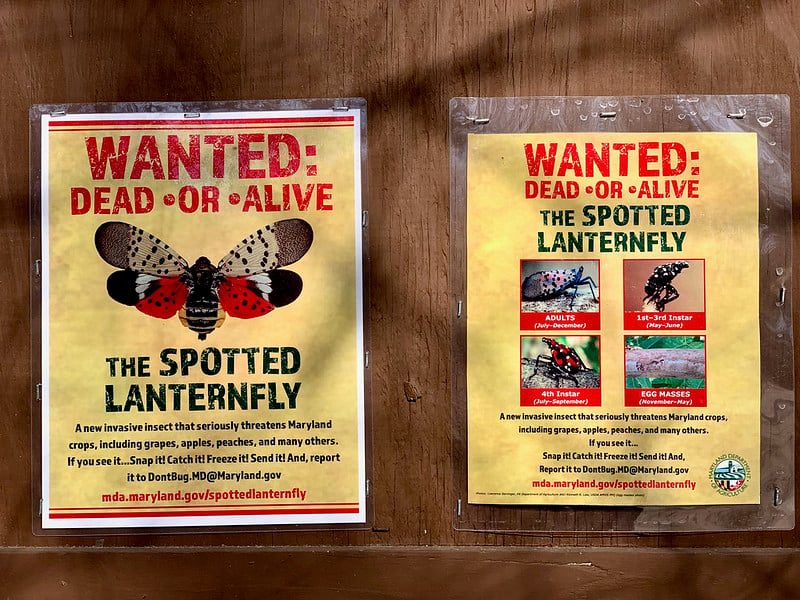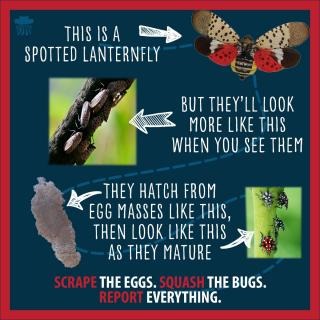
To the untrained eye, the spotted lanternfly (Lycorma delicatula) may look like a beautiful butterfly. The insect's front wings are light brown with black spots, while its hind wings have contrasting patches of red and black with a white band in between. However, the spotted lanternfly is a pest that feasts on and damages crops. It poses a serious threat to farmers across America.
Where can spotted lanternflies be found in the US?

Spotted lanternflies are native to China. The insects are believed to have arrived in the US attached to Asian imports in 2012. The first infestation was detected in Pennsylvania in 2014. But efforts to eradicate the insects failed, and they have since spread to 13 other states. They include Connecticut, Delaware, Indiana, Maryland, Massachusetts, Michigan, New Jersey, New York, North Carolina, Ohio, Rhode Island, Virginia, and West Virginia.
How do spotted lanternflies travel?
The insects spread primarily through human activity. Adult spotted lanternflies often hitch rides on trunks, wheels, or bumpers. People also inadvertently help transport the eggs, which are laid in clumps of 30 or more on almost any surface. This includes camping trailers and train cars.
Why are spotted lanternflies so feared?

Spotted lanternflies are not harmful to humans. But they can create havoc for farmers. The parasite feasts on the sap of 70 species of trees and crops. This weakens the plants and impacts their ability to bear fruit. Additionally, the insect excretes a sugary liquid which causes mold to grow on the plant. This inhibits the plant's ability to photosynthesize. With no energy to survive and grow, it eventually dies. Grape growers are particularly wary because the insects can destroy entire vineyards.
What to do if you see a spotted lanternfly

Spotted lanternflies typically begin to hatch in May and June. This means there may currently be some egg masses in your garden or even on your car bumper. Experts recommend killing them by putting the entire clump into a sealed plastic bag containing hand sanitizer or rubbing alcohol. Adult specimens should also be immediately destroyed. Most importantly, report any sightings to your local agriculture office. They can quarantine the area and stop the harmful insects from spreading further.
Resources: nhm.ac.uk, NPR.com, aphis.usda.gov
